A Camera Eye Towards the Future
Written by Julia Davis, Student Engagement Fellow | Published: June 21, 2022
Winners of the 2021-2022 Student Video Contest Announced
Each year, our World of 7 Billion Student Video Contest allows students from around the world to think critically about how population growth affects different environmental and social issues.
This year’s contest asked middle and high school students to submit a 60-second video about how population growth impacts one of the following global challenges: ocean health, urbanization, or agriculture and food. The students were tasked with offering a solution in their videos, and the ideas ranged from eating insects as a meat alternative to installing modular green roofs in urban areas.
More than 4,000 students from around the world participated in this year’s contest—submissions came from 48 countries and 45 U.S. states and territories!
Many students collaborated with classmates on their videos, either independently or as part of a classroom assignment. The PopEd team provides resources to help students as they produce their videos, including background readings on the different contest topics, filmmaking tips and resources, a graphic organizer, judging rubric, and related lessons for teachers.
The videos were first viewed by the PopEd staff, who narrowed down a selection of finalists. These were then sent to a panel of 44 judges made up of educators, filmmakers, and topic experts, who selected the winning videos. High school winners received $1,200 for first place, $600 for second place, and $300 for an honorable mention, while middle school winners received $600 for first place and $300 for second place.
The level of complexity and attention to detail that our winning videos were able to bring to their productions are a beacon of hope that our future world leaders have the thoughtfulness and understanding to tackle pressing global issues. Their proposed solutions ask society to rethink our approach to topics like urban planning, food insecurity, and fishing practices, to name a few.
You can view this year’s winning entries, along with students’ photos and expanded bios, on our contest website: worldof7billion.org.
Ocean Health
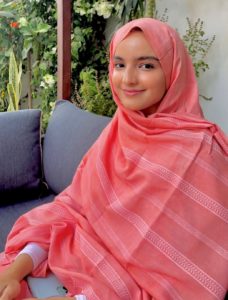 1st Place, High School
1st Place, High School
“Overfishing: A Fishy Business and How to Combat It”
Fatma Raghani
Grade 12, Lycée Français Théodore Monod
Nouakchott, Mauritania
Fatma says that “not a lot of people know that Mauritania has a serious problem with overfishing.” She thought creating a video could help increase awareness. Her solutions focus on seeking out other sources of protein, supporting local fishing, and petitioning for catch limits. Fatma currently serves as class president in her student council and plans to go to medical school and become a public health doctor.
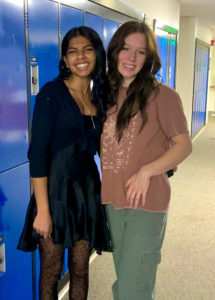
2nd Place, High School
“Ghost Nets”
Kaviya Chidambaram & Nora Bruxvoort
Grade 11, Broomfield High School
Broomfield, CO
Kaviya and Nora’s video uses a whiteboard animation style to talk about the dangers of “ghost nets,” or abandoned industrial fishing nets, which account for 70 percent of all marine wildlife entanglement. Their solution involves using biodegradable nets and net tracking devices to make it easier for fishing nets to break down or be recovered and reused. Both Kaviya and Nora are interested in working in the environmental field in the future.
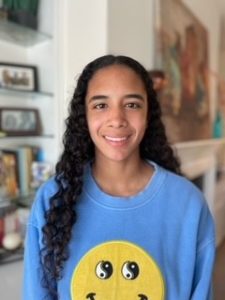
1st Place, Middle School
“Keep the Corals Colorful”
Alicia Ortiz
Grade 7, Plaza Middle School
Virginia Beach, VA
Alicia’s video explains the complicated science behind coral bleaching using original animation she created after teaching herself how to use animating software. She proposes implementing marine permaculture as a solution, which would use seaweed to cool water around coral reefs. Alicia enjoys painting, sculpting, and drawing and would love to pursue a future career in art.
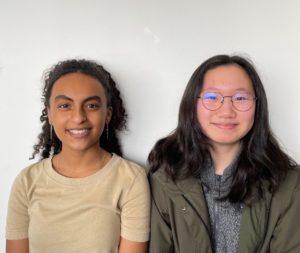
2nd Place, Middle School
“A Poem About Overfishing—the Future of Our Fish”
Feben Tessema & Anna Yang
Grade 8, Eastside Preparatory School
Kirkland, WA
Feben and Anna took the creative approach of making their video a rhyming poem packed with facts about overfishing. As a solution, they recommend no-fish zones around the world to allow the ocean to recover. Their animated poem combines Feben’s passion for poetry with Anna’s passion for drawing, resulting in a truly creative video.
Urbanization
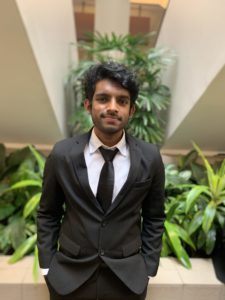
1st Place, High School
“Greener Cities Are Stronger Cities”
Nagasujan (Sujan) Ganesh Kumar
Grade 12, Enloe High School
Raleigh, NC
Sujan’s video proposes a unique solution to implementing green roofs that we had not seen before—modular panels that allow people to install them in sections on a smaller scale. “I was looking for a solution that would be a bit more cost-effective and that you could implement anywhere,” he says. Next year, Sujan will be attending the Georgia Institute of Technology, where he plans to study industrial engineering with a concentration in data science.
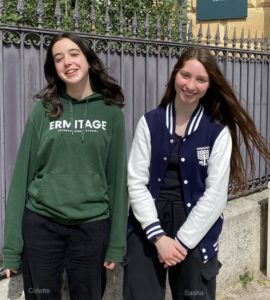
2nd Place, High School
“Urbanization: Energy Efficient Housing”
Sasha Kobrina & Colette Siegel
Grade 9, Ermitage International School of France
Maisons-Laffitte, France
Sasha and Colette’s video takes a look at how much energy we could save by utilizing passive housing, which relies on buildings being carefully designed to make the best use of sunlight and heat recovery systems. Sasha and Colette decided to submit their video to the contest because of their shared interest in urbanization. Sasha says, “Small-scale urbanization touches all of us.”
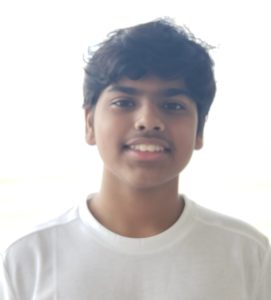
1st Place, Middle School
“Urban Sprawl: A Challenge”
Arnav Bali
Grade 8, Central Middle School
Edgewater, MD
Arnav is a repeat winner of this contest. His winning video this year looks at urban sprawl, specifically how a growing population needs more housing, which can disrupt wildlife habitats. “I live in an urban area, and I saw that there were a lot of differences between neighborhoods and how some areas are very densely populated and some are sparsely populated and how that affects the environment,” he says.
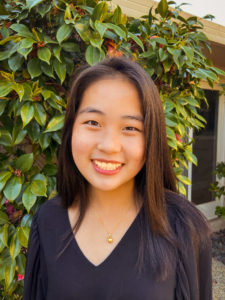
2nd Place, Middle School
“Solving Homelessness Person by Person”
Kayla Ling
Grade 8, The Nueva School
Hillsborough, CA
Kayla took inspiration for her video from her experience living in Taiwan in 4th grade. There, Kayla noticed the presence of micro-communities and how powerful having strong local connections can be. Her solution to homelessness is “starting from the bottom up with the people who are really individually affected by the issue.” Kayla is involved in social justice and climate action, her ultimate passion.
Agriculture and Food
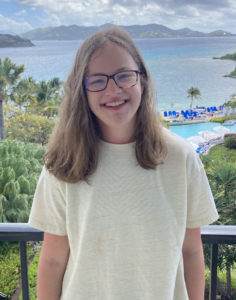
1st Place, High School
“The Meat of the Future”
Abigail McDaniel
Grade 9, Great Valley High School
Malvern, PA
Abby’s solution to the unsustainability of eating meat is one that already has proven successful in many areas of the world: She proposes utilizing insects as a protein source, and her video calls out the taboo nature of eating insects in many parts of the Western world. Abby says that she was pleasantly surprised by how appetizing many of the recipes she researched were. Abby throws shotput and discus for her school’s track team and hopes to pursue technology or engineering in the future.
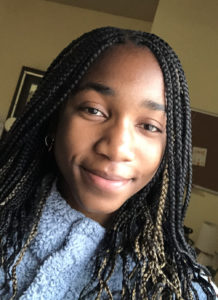
2nd Place, High School
“Repurposing Weeds to Combat Deforestation”
Ranye Ezenekwe
Grade 9, Peak to Peak Charter School
Lafayette, CO
Ranye used her years of animation experience to educate viewers on something that most people see in a negative light: weeds. Her video shows how we could use weeds productively in areas that have been stripped of soil and nutrients and ultimately build up arable land, eventually reversing deforestation. Ranye is on her school’s varsity tennis team and also enjoys playing the clarinet, reading, and completing the New York Times crossword.
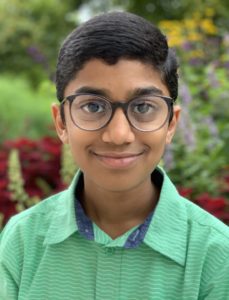
1st Place, Middle School
“Aquaponics: A Self-Sustainable Solution to the Rising Demand for Food and Water”
Benjamin Kurian
Grade 6, Olentangy Middle School
Powell, OH
Benjamin is “concerned about feeding the world” and says that “our current ways of doing that aren’t really sustainable.” His aquaponics solution uses farmed fish waste to supply nutrients to plants grown in the same water, a process which purifies the water. Benjamin plays piano, violin, and drums and loves using his music editing software.
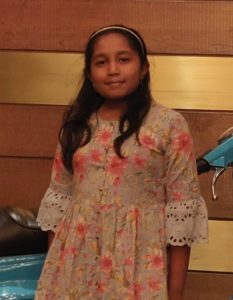
2nd Place, Middle School
“The Future of Agriculture”
Sadhana Vija
Grade 8, Tagore International School
New Delhi, India
Sadhana’s video explores creative ways to combat habitat fragmentation from large-scale agriculture, such as overpasses and underpasses for wildlife. She also addresses the need to develop sustainable agriculture techniques, like vertical farming. Sadhana recently wrote an essay on climate change that was published in a book by UNESCO: Year 2 AC (After Coronavirus): A Future Imagined by Youth: 100 Essays by Young Indians.
High School Honorable Mentions
“Bunting the Bottle”
Jeevan Janeev & Samuel Taylor
Grade 12, Coppell High School
Coppell, TX
“Tiny Shrimp Are a Big Problem: Solution for Mangrove Destruction”
Sophia Heilen
Grade 12, Battlefield High School
Haymarket, VA
“Beat the Heat: Implementing Green Roofs”
Sabina Khizroev
Grade 9, Miami Palmetto Senior High School
Pinecrest, FL
“A Corridor to Global Health”
Carter Sutton
Grade 11, Reedy High School
Frisco, TX
“Animal Agriculture in a Growing World”
Olivia Zheng
Grade 11, Stuyvesant High School
New York, NY
“The False Banana”
Alexandra Pilz & Eleonore Vecchioli
Grade 9, St. Paul’s Girls’ School
London, United Kingdom
